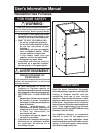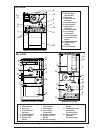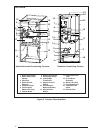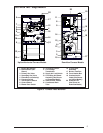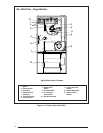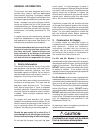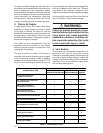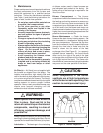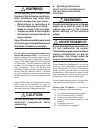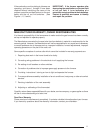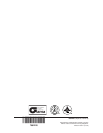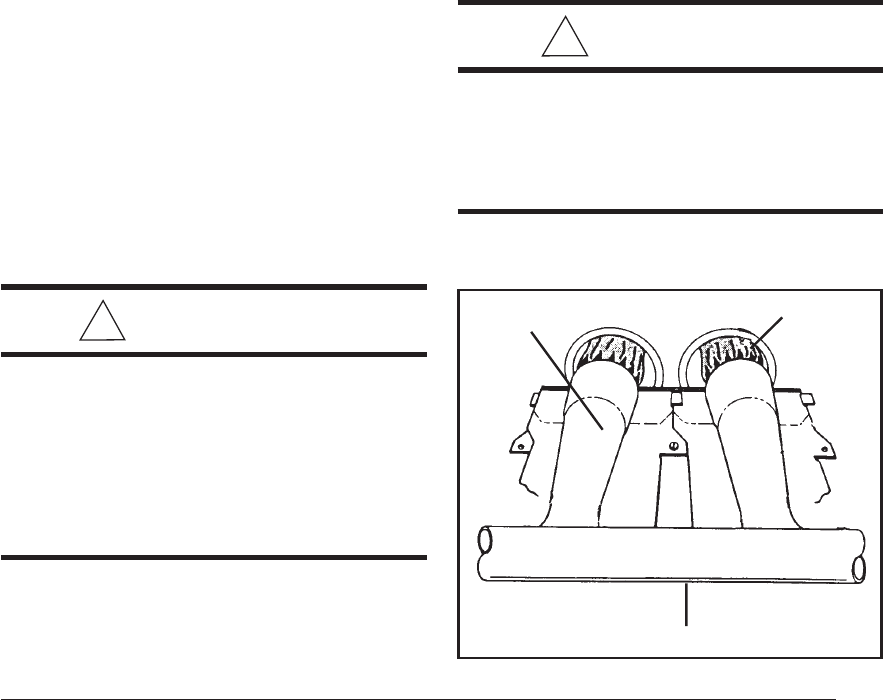
9
5. Maintenance
Proper maintenance is most important to achieve
the best performance from this furnace and
should be performed by a qualified service
technician. Follow the maintenance schedule
(see Table 1) and the following instructions for
years of safe, trouble free operation.
• Do not place combustible materials on
or against the furnace cabinet.
• Do not store gasoline or any other
flammable vapors and liquids in the
vicinity of the furnace.
• Annually inspect the furnace, ductwork,
and vent system for signs of physical
deterioration.
• Change or replace the air filters monthly
during any period when the circulating
blower is operating regularly.
• Always replace the doors on the furnace
after servicing or cleaning/changing the
filters. Do not operate the furnace
without all doors and covers in place,
except to check burner operation.
• Avoid operating the furnace when
windows and doors are open.
• Be sure that the thermostat is properly
installed and is not being affected by
drafts or heat from lamps or other
appliances.
Air Filter(s) — Air filter(s) are not supplied with
the furnace as shipped from the factory. The
installer must provide a high velocity filter and
rack in the return air duct adjacent to the furnace,
or in a return air grille to the furnace. The filter(s)
must be removed and cleaned monthly during the
heating season to ensure proper furnace
operation. New or newly renovated homes may
require more frequent changing until the
construction dust has been removed.
!
WARNING:
Never operate the furnace without a
filter in place. Dust and lint in the
return air can build up on the internal
components, resulting in a loss of
efficiency, equipment damage, and
possible fire.
Always replace the door(s) on the furnace after
servicing or cleaning/changing the filters. Do not
operate the furnace without the door(s) in place.
Lubrication — The bearings in the circulating
air blower motors used in these furnaces are
pre-lubricated and sealed at the factory. No
further oiling of the bearings is required for the
life of the motor.
Blower Compartment — The blower
compartment should be cleaned monthly during
the heating and cooling seasons to remove any
dirt and lint that may have accumulated in the
compartment or on the blower and motor. Build-
up of dirt and lint on the blower and motor can
create excessive loads on the motor resulting in
higher than normal operating temperatures and
possible shortened service life.
Burner Maintenance — Check the burner
flames at the start of every heating season. Set
the thermostat to a temperature setting above
the room temperature. Remove the top door
from the furnace and visually inspect the burner
through the view hole to make sure that the
flame is drawn into the center of the heat
exchanger tube (See Figure 5). In a properly
adjusted burner assembly, the flame bends
down and to the right at the end of the heat
exchanger tube, and the end of the flame will be
out of sight around the bend. The flame color
should be blue, however some light yellow streaks
may occur on the outer portions of the flame.
!
CAUTION:
Some components in the burner
vestibule are at high temperatures
while the burners are operating. Use
caution to avoid personal injury.
Figure 5. Burner Inspection
Burner
Flame
Manifold



